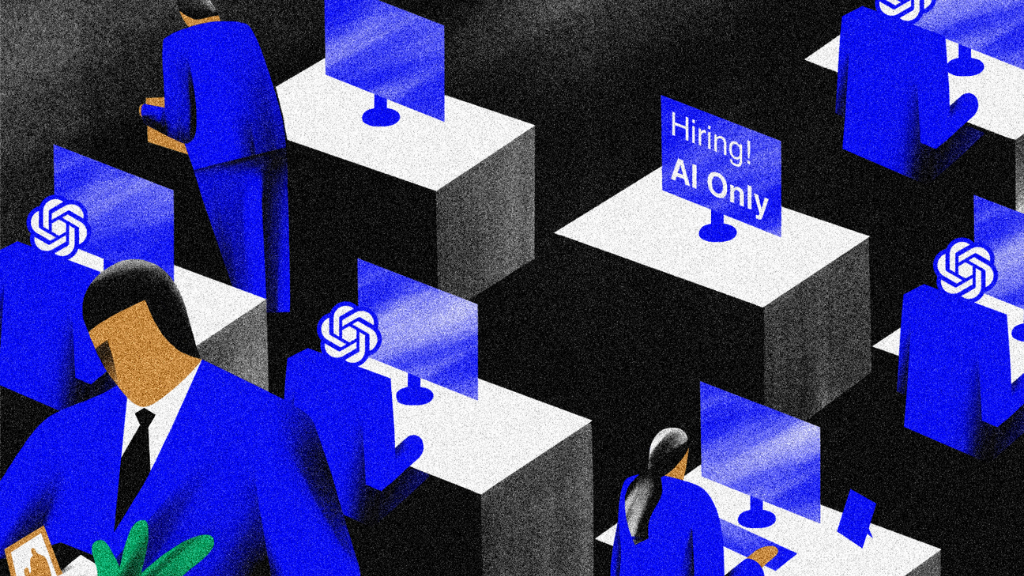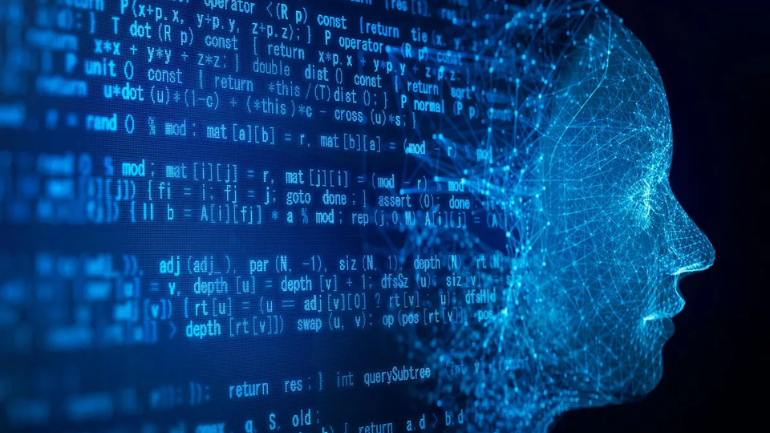Skilled programmers have always been responsible for developing software and writing code to bring new and exciting solutions to life. Despite this, cutting-edge language models like OpenAI's ChatGPT have emerged thanks to recent developments in AI and NLP.
ChatGPT is a large language model built on the GPT-3 architecture. Its capacity to generate text that looks and reads like human language has spurred debate about whether or not AI would eventually replace human programmers.
It is trained on vast amounts of text data and can generate coherent and contextually relevant responses to natural language prompts. Unlike traditional programming, where explicit instructions are provided in code, it interprets and generates text to perform various tasks.
With its vast knowledge base, ChatGPT has demonstrated remarkable proficiency in language translation, writing code snippets, answering questions, creating conversational dialogues, and much more.
This versatility has sparked interest in exploring its applications in software development. This blog will go into the features of ChatGPT and its potential effects on the future of software development, discussing its advantages, disadvantages, and ethical concerns.
Applications of ChatGPT
-
Automated Code Generation
ChatGPT's potential to help with code creation is one of its most exciting uses in software engineering. Writing boilerplate code and establishing parameters for different libraries are two examples of the monotonous work that developers must do.
By producing code snippets from the developer's natural language descriptions, ChatGPT can automate these processes. It frees up developers' time and energy to concentrate on the project's more in-depth, intricate components.
In addition, ChatGPT can serve as a bridge for newcomers to the coding world by giving easy-to-understand, step-by-step guidance. It could open up the field of software development to a wider audience and help more people get involved.
-
Debugging And Troubleshooting
Determining and fixing software issues can be challenging and time-consuming if you need to know your way around the code and the underlying infrastructure. ChatGPT's ability to perform code analysis and spot problems is useful in this field.
ChatGPT's expertise in programming languages and best practices allow it to provide insights or suggest alternative solutions based on a developer's natural language description of the problem.
Its collaborative nature allows for more accurate and timely debugging by providing developers with feedback and extra resources. Overall, it reduces the time and cost of investment in a particular project.
-
Faster Prototyping & Iteration

Rapid prototyping is essential to software development, allowing developers to experiment with various design ideas and functionalities. ChatGPT's quick response times and ability to generate code on-the-fly can accelerate the prototyping phase.
This feature enables developers to iterate more swiftly. ChatGPT can support the creative process by effortlessly translating ideas into code, leading to faster development cycles and more innovative solutions.
-
AI-Driven Software Testing

The quality and dependability of software depend on the testing process. ChatGPT can do more than generate code; it can also understand and justify assertions made in natural language and process them accordingly.
ChatGPT can generate test code to run specific scenarios and cases based on user-provided descriptions of desired behaviors. AI in testing can improve test coverage and reveal edge cases missed by more human approaches.
Ethical Considerations And Challenges
The potential role of ChatGPT in replacing programmers raises significant ethical considerations and challenges that demand scrutiny. Let's understand these challenges carefully and the ways to overcome them.
- Job Displacement: Widespread adoption of AI in software development may lead to concerns about job displacement for human programmers. While ChatGPT can streamline certain tasks, it will likely partially replace creativity and problem-solving abilities.
- Bias and Fairness: Language models like ChatGPT are trained on vast amounts of data from the internet, which can perpetuate biases present in the data. Incorporating such biases into code generation can have serious ethical implications, leading to biased software.
- Security and Vulnerabilities: Relying heavily on AI for critical tasks may introduce security vulnerabilities and potential attack points. Ensuring the robustness and reliability of AI-generated code is essential to prevent potential threats.
- Accountability and Responsibility: When AI systems generate code, it becomes challenging to attribute accountability and responsibility for the outcomes. In the case of errors or failures, determining the root cause and addressing accountability becomes complex.
Could ChatGPT Replace Programmers?

While AI language models like ChatGPT have shown remarkable capabilities in generating code and assisting with programming tasks, they can only partially replace programmers. Artificial intelligence models can deliver answers based on existing patterns.
It is because of their extensive training, but they can't match the originality and ingenuity of human developers. Creative problem-solving and out-of-the-box thinking are common programming requirements.
This degree of originality is distinctly human and difficult for AI to simulate. Knowing what the end-user wants and expects is crucial in the programming world. User participation, feedback, and iterative solution improvement are essential to efficient software development.
Human programmers can sympathize with end customers, which aids in understanding their wants and delivering software that meets their specifications. The emotional intelligence and comprehension required for these kinds of interactions are beyond AI's capabilities.
Human programmers also excel in another crucial area AI needs to improve: debugging and troubleshooting. Finding and correcting complicated faults and errors in software is an iterative process.
To identify problems and provide workable solutions, programmers rely on deductive reasoning, analytical thinking, and expertise in a given domain. While AI models excel in pattern recognition, they may need help understanding the complex logic necessary for debugging.
Further, human programmers offer much more than just coding skills. Applications, potential limitations, business ramifications, and ethical considerations are all familiar territory for them. With this knowledge in hand, they may design software that fits the needs of various sectors.
Also, their software will follow applicable rules and considers the potential for positive social change. Artificial intelligence currently cannot fully grasp the complexities of several disciplines. Working together is also an essential part of creating software.
Teams of programmers frequently collaborate to accomplish shared objectives by pooling their skills and knowledge. In an AI setting, where models often work independently, recreating the synergy that emerges from human cooperation takes time and effort.
Conclusion
There's no denying the tremendous potential of ChatGPT and related language models to revolutionize the software engineering industry. ChatGPT can transform the industry and make programming accessible to a wider audience.
ChatGPT can do this by automating code generation, offering debugging support, facilitating quick prototyping, and increasing software testing. However, its implementation poses serious moral concerns and difficulties, such as job loss and lack of responsibility.
There will undoubtedly be a mutually beneficial partnership between human programmers and AI-enhanced technologies like ChatGPT in the future of software development. AI can help developers save time, work more efficiently, and create better software.
It is essential to confront ethical concerns head-on, implement strong laws, and emphasize human-AI collaboration if we fully realize AI's potential in software development. But you need to be a little bit careful.
If handled properly, AI-driven innovations in software development can usher in a period of innovation and creativity that benefits both developers and end-users. And you can also learn to use ChatGPT effectively without harming your skills.











Please complete your information below to login.
Sign In
Create New Account